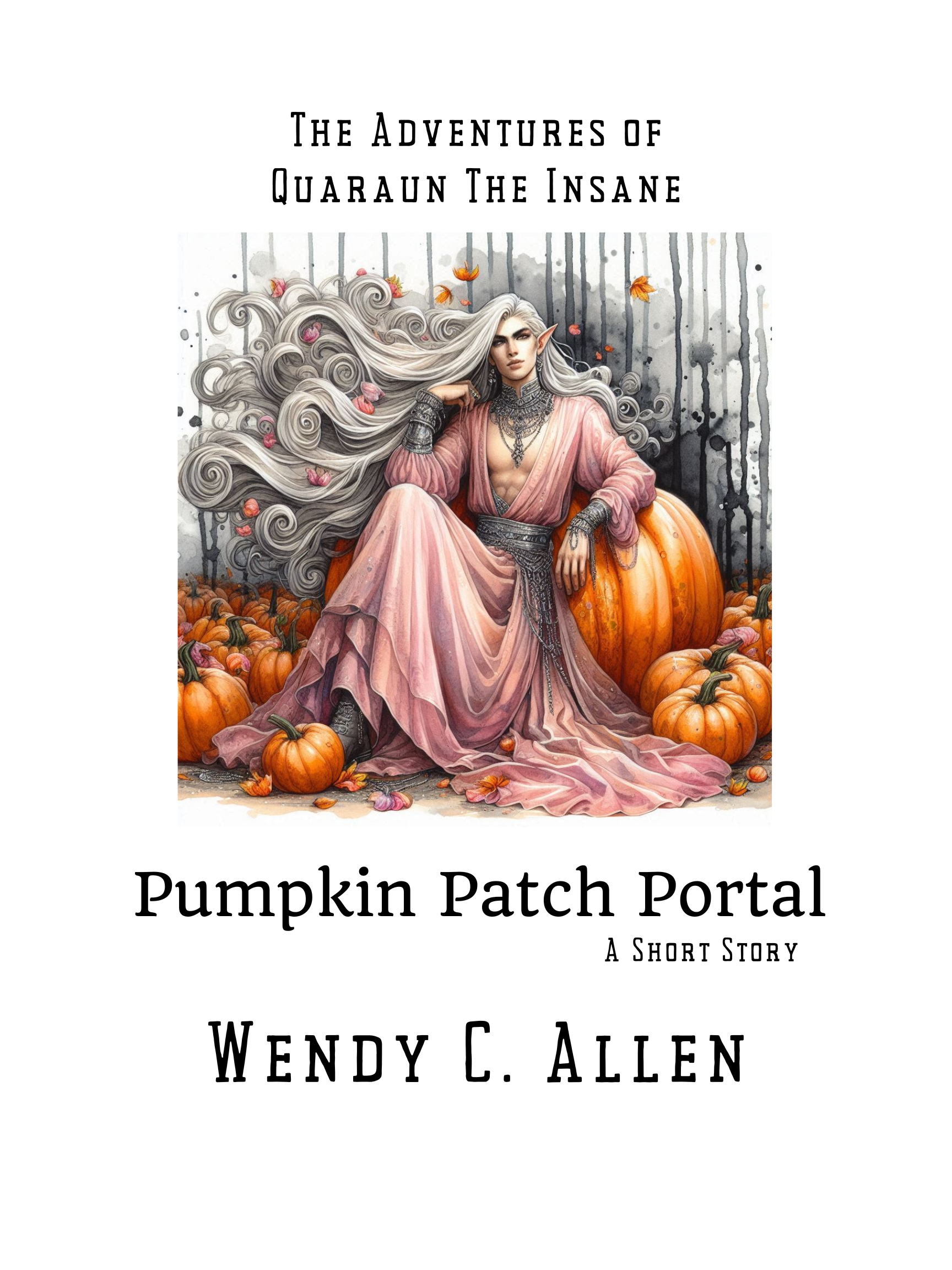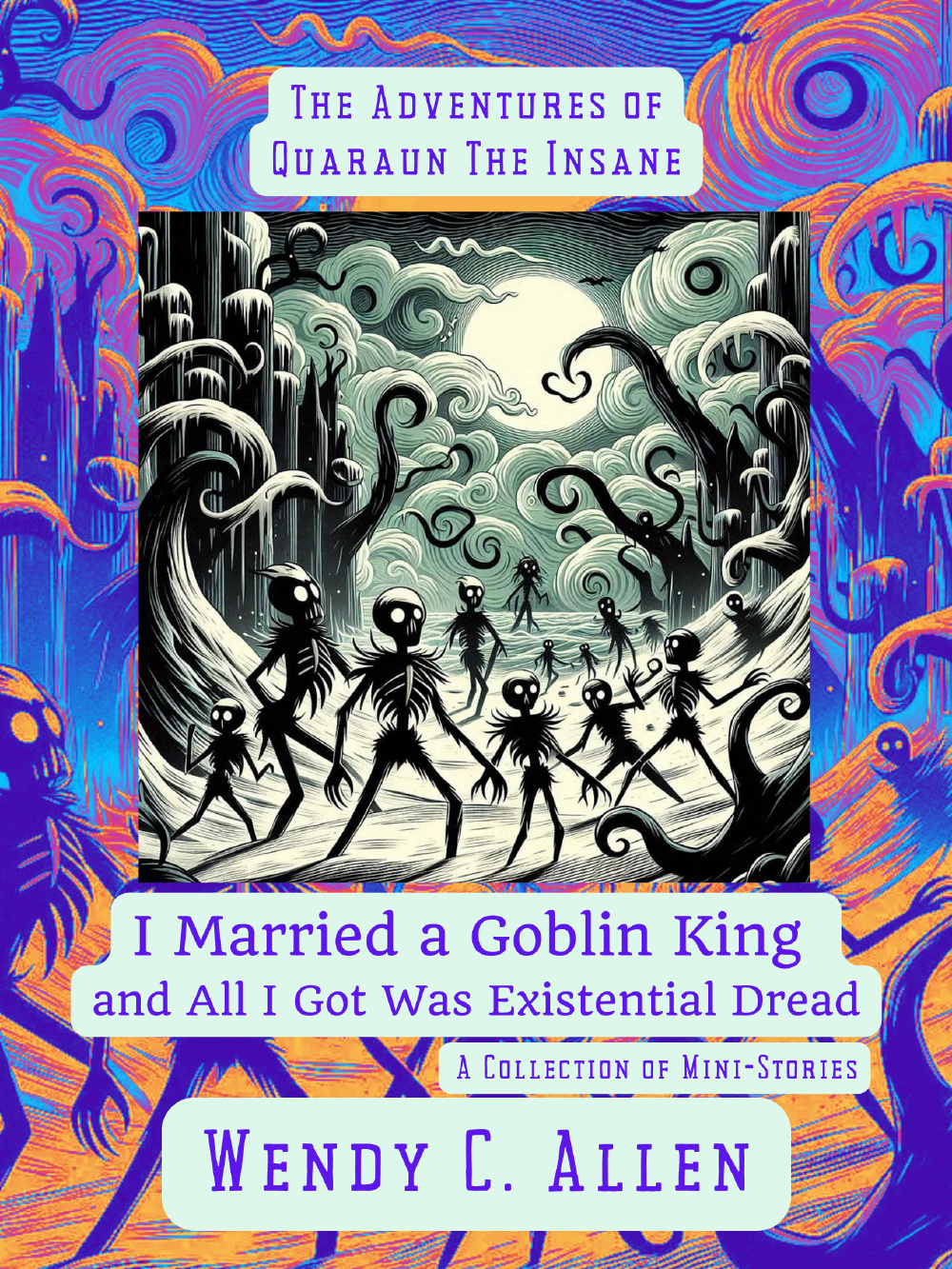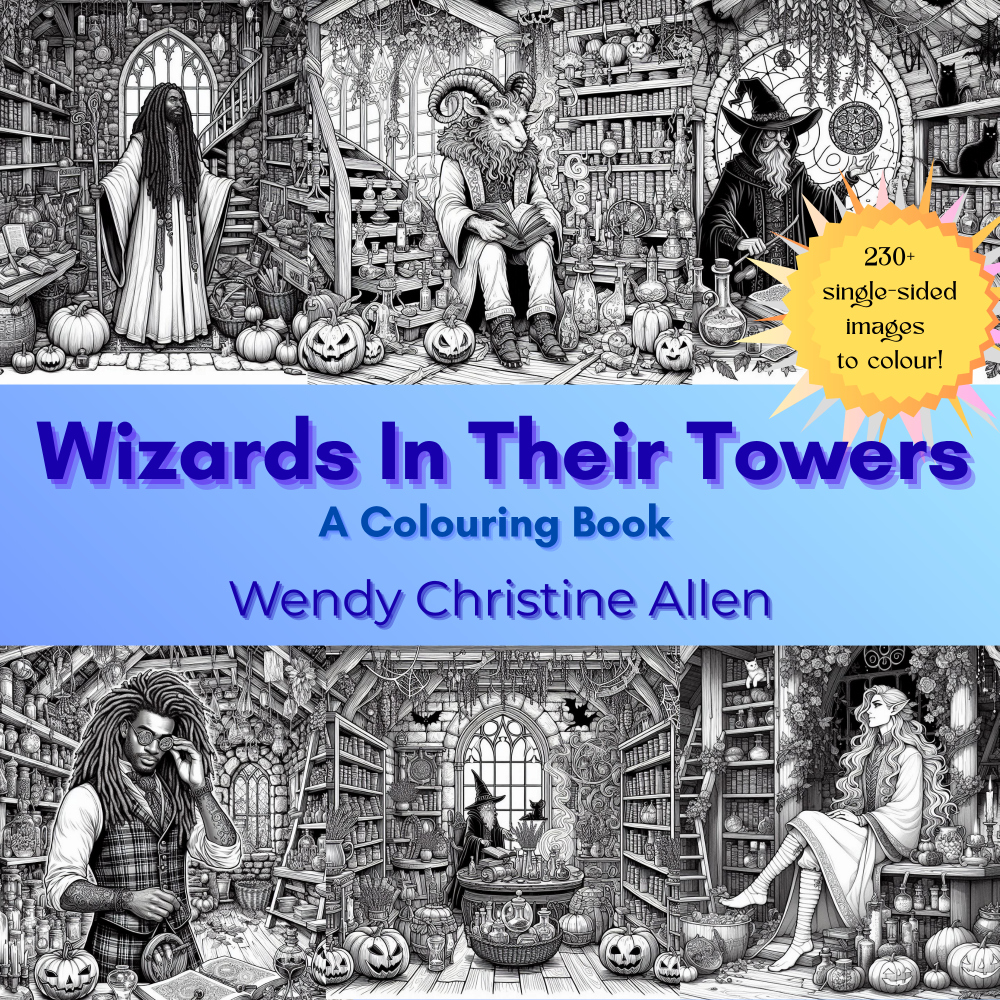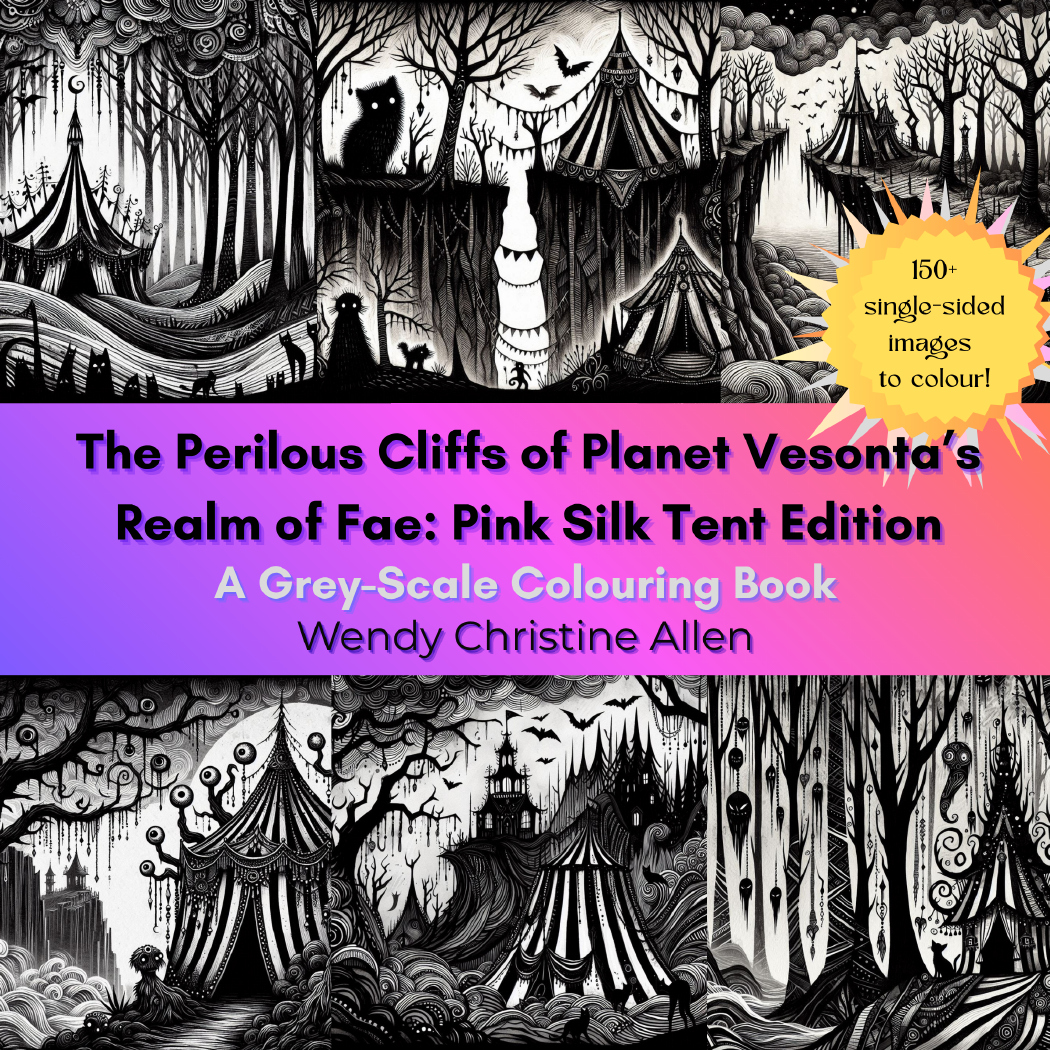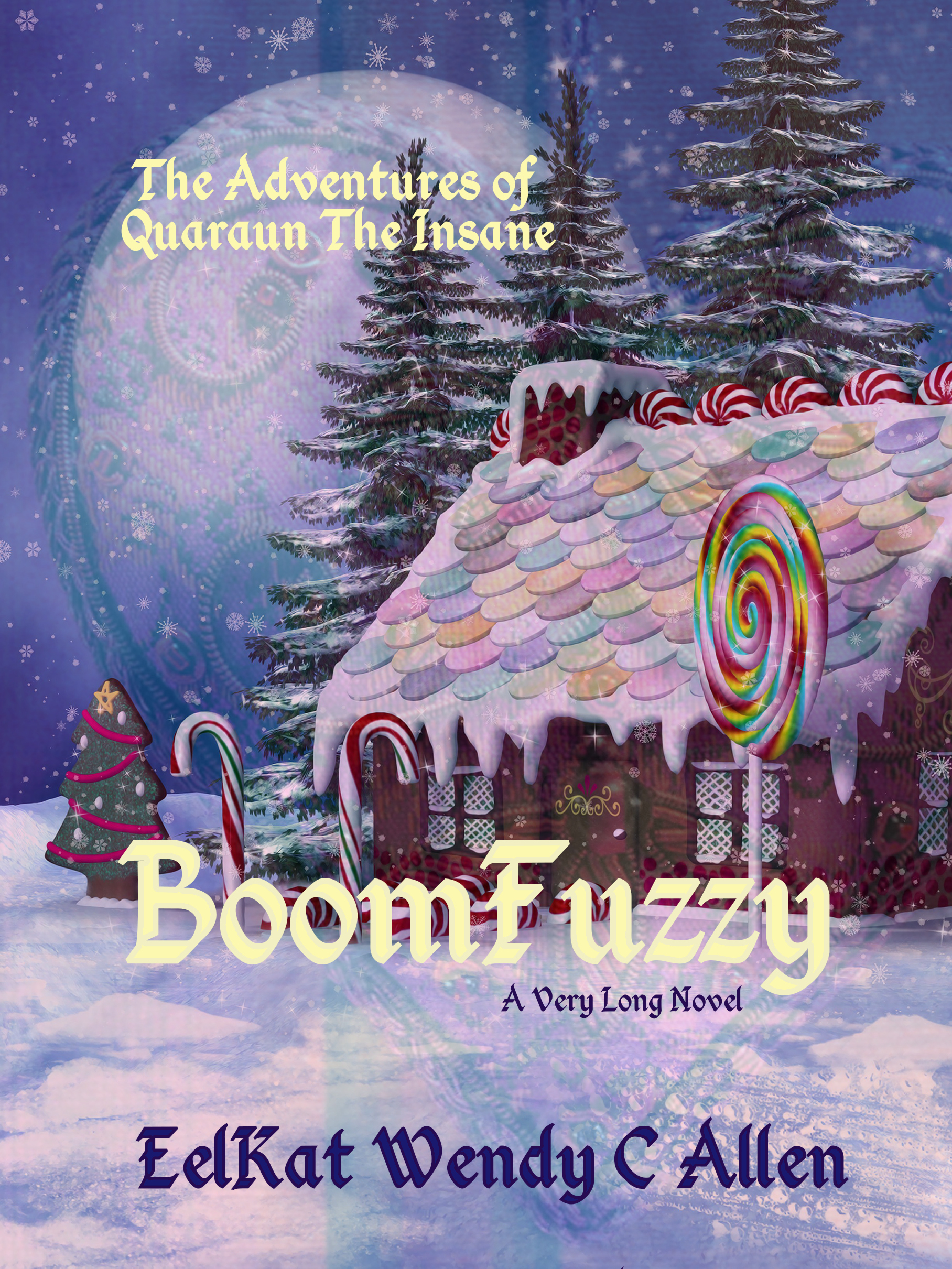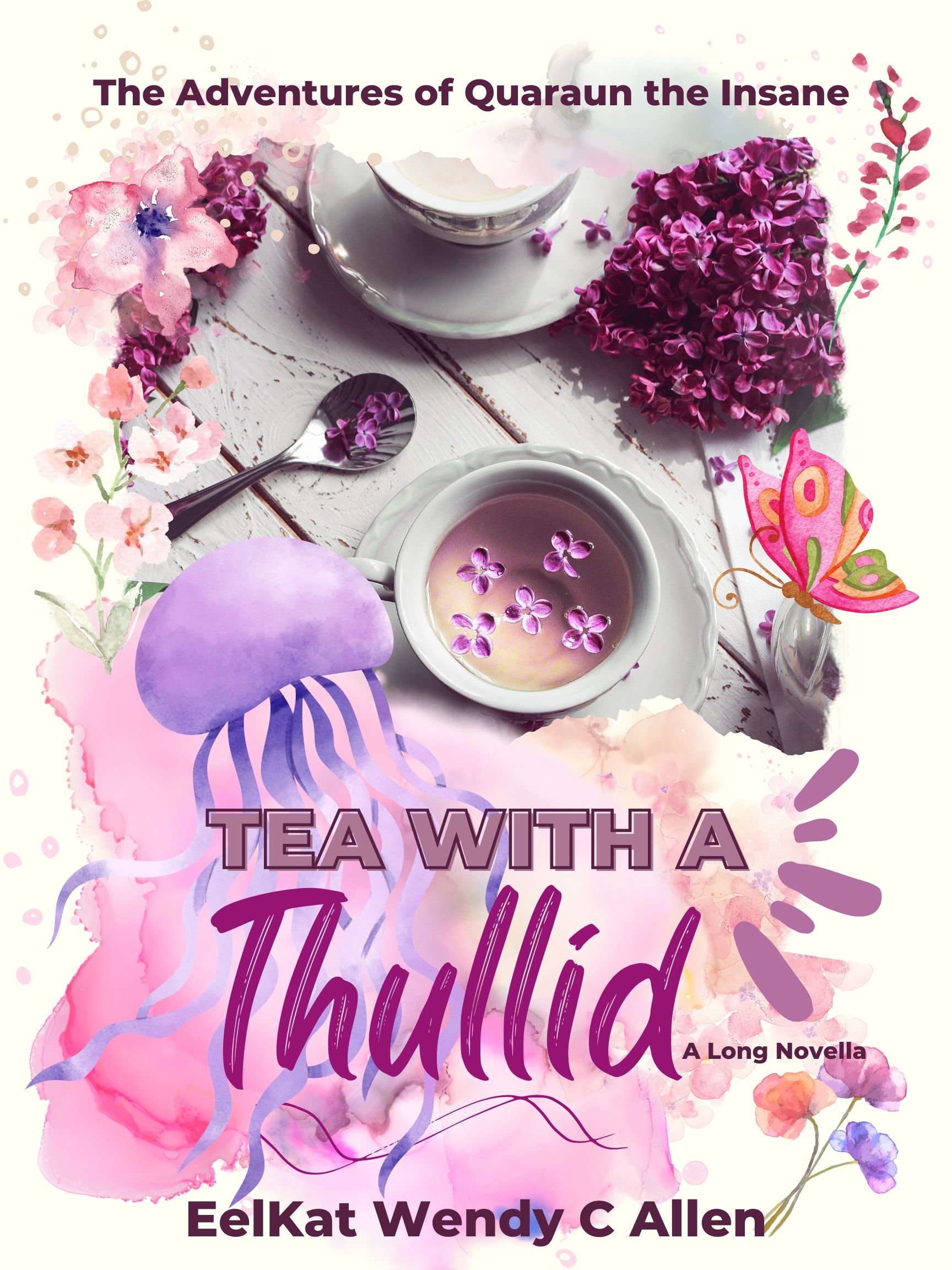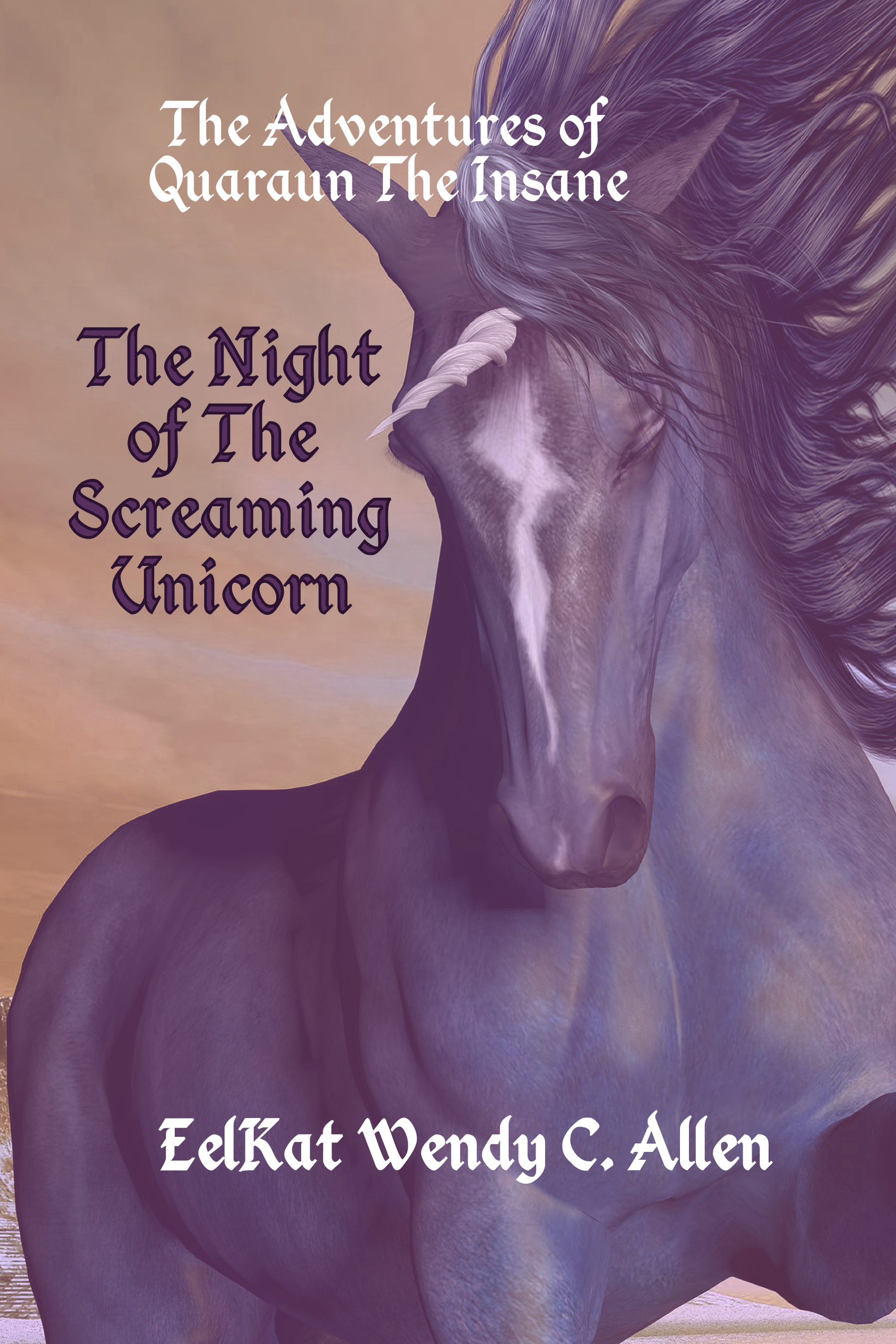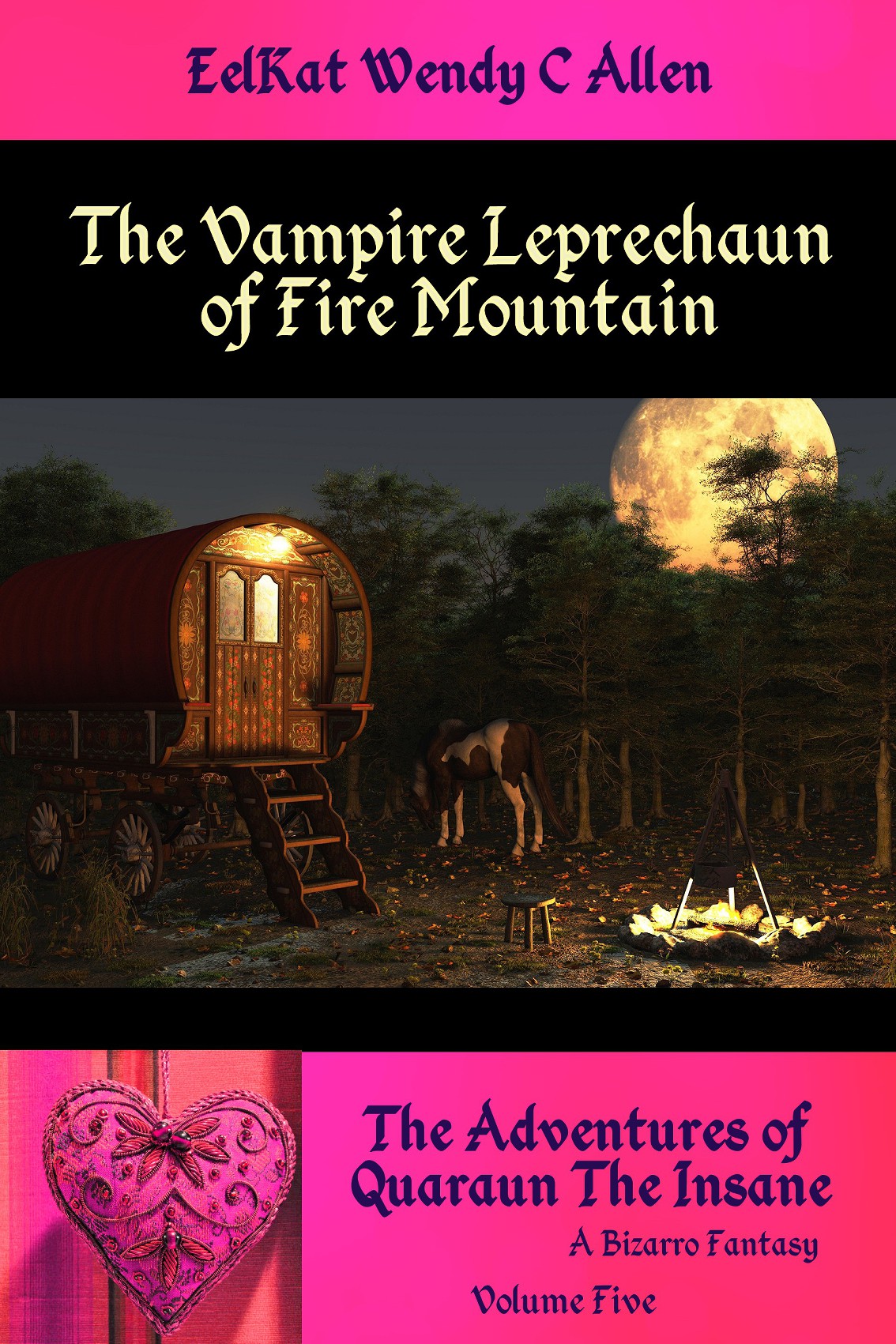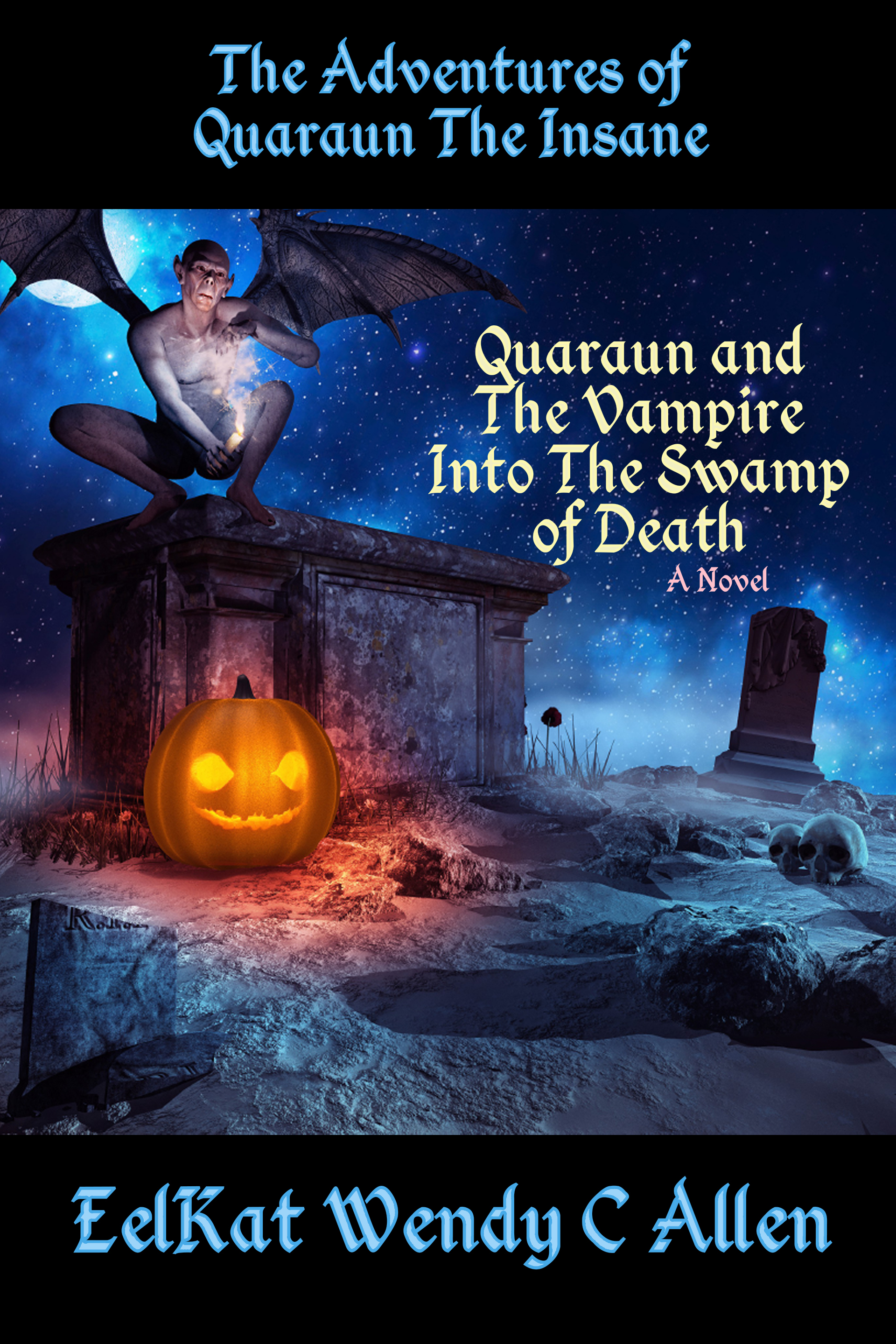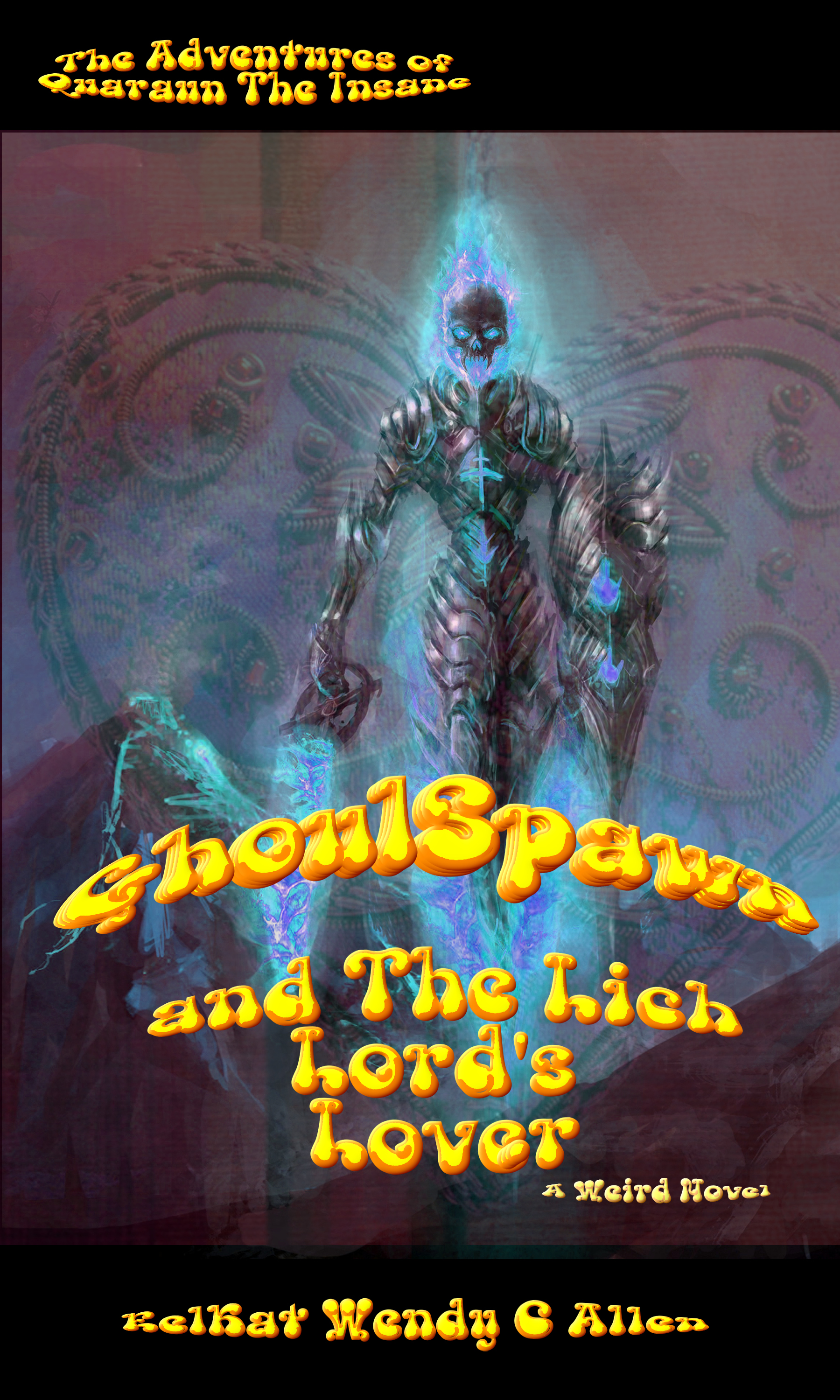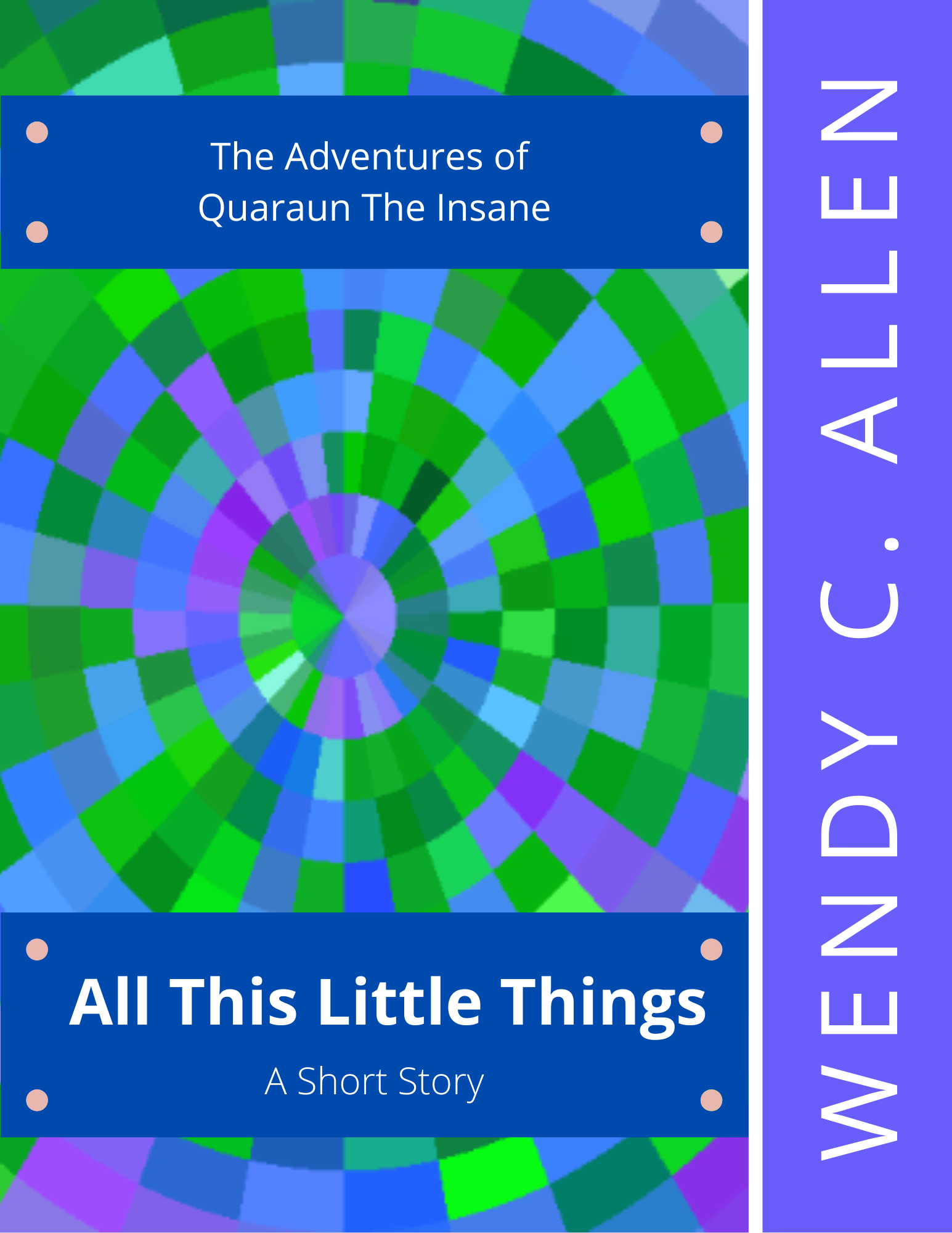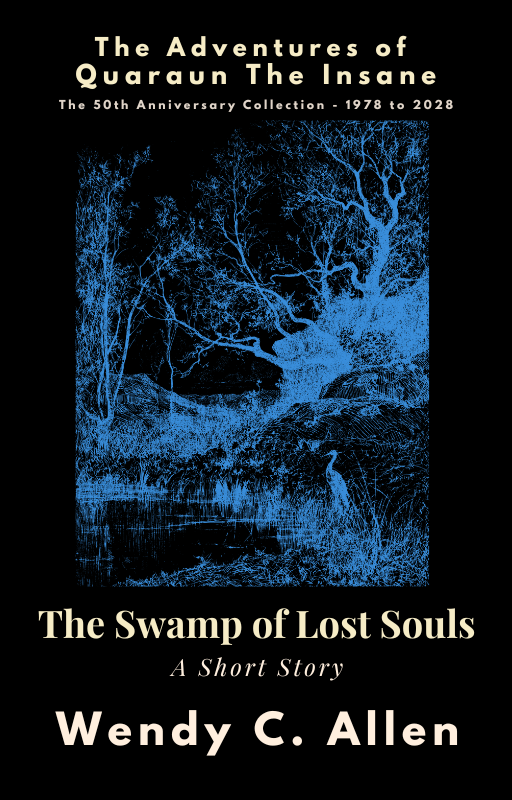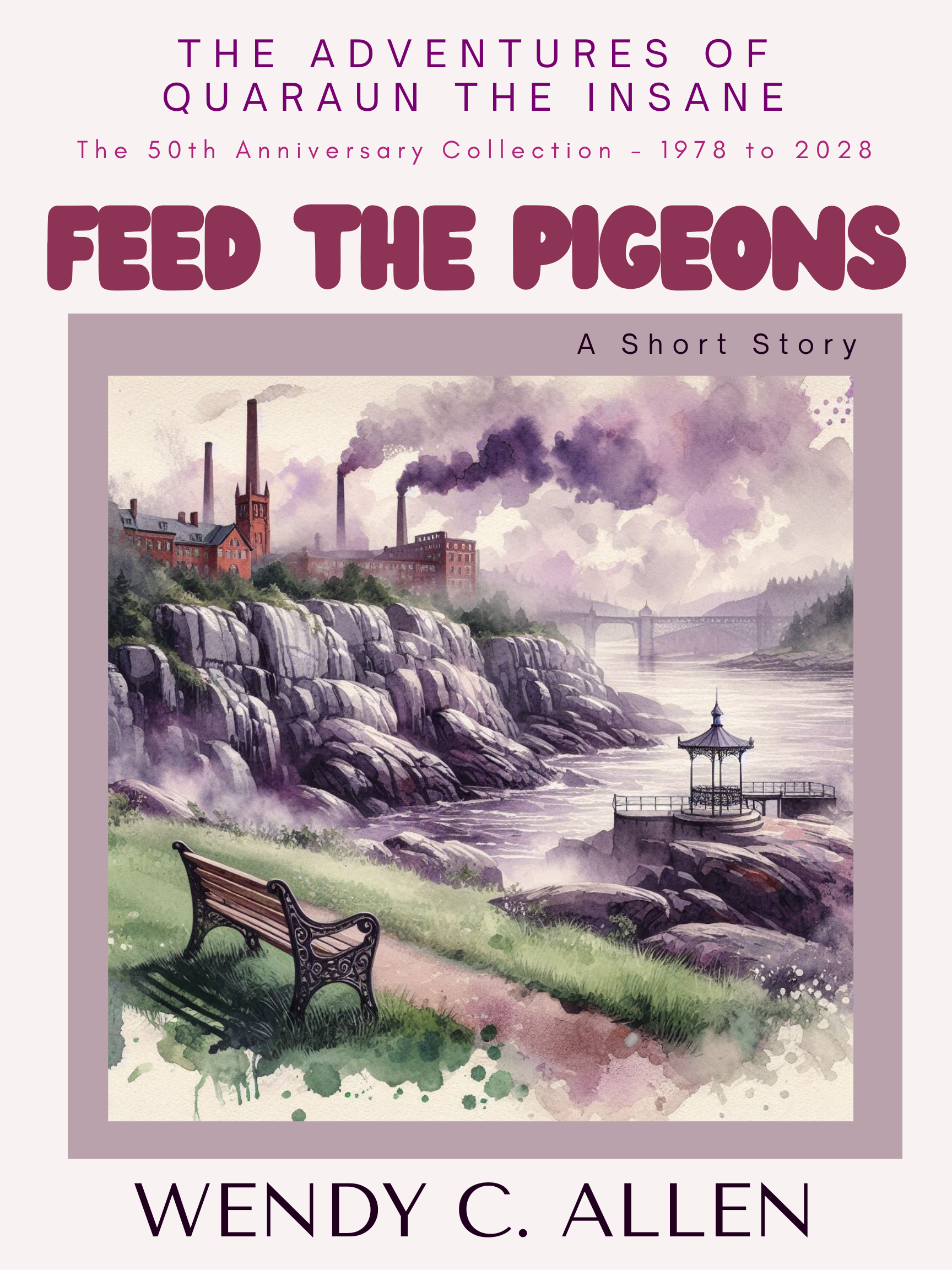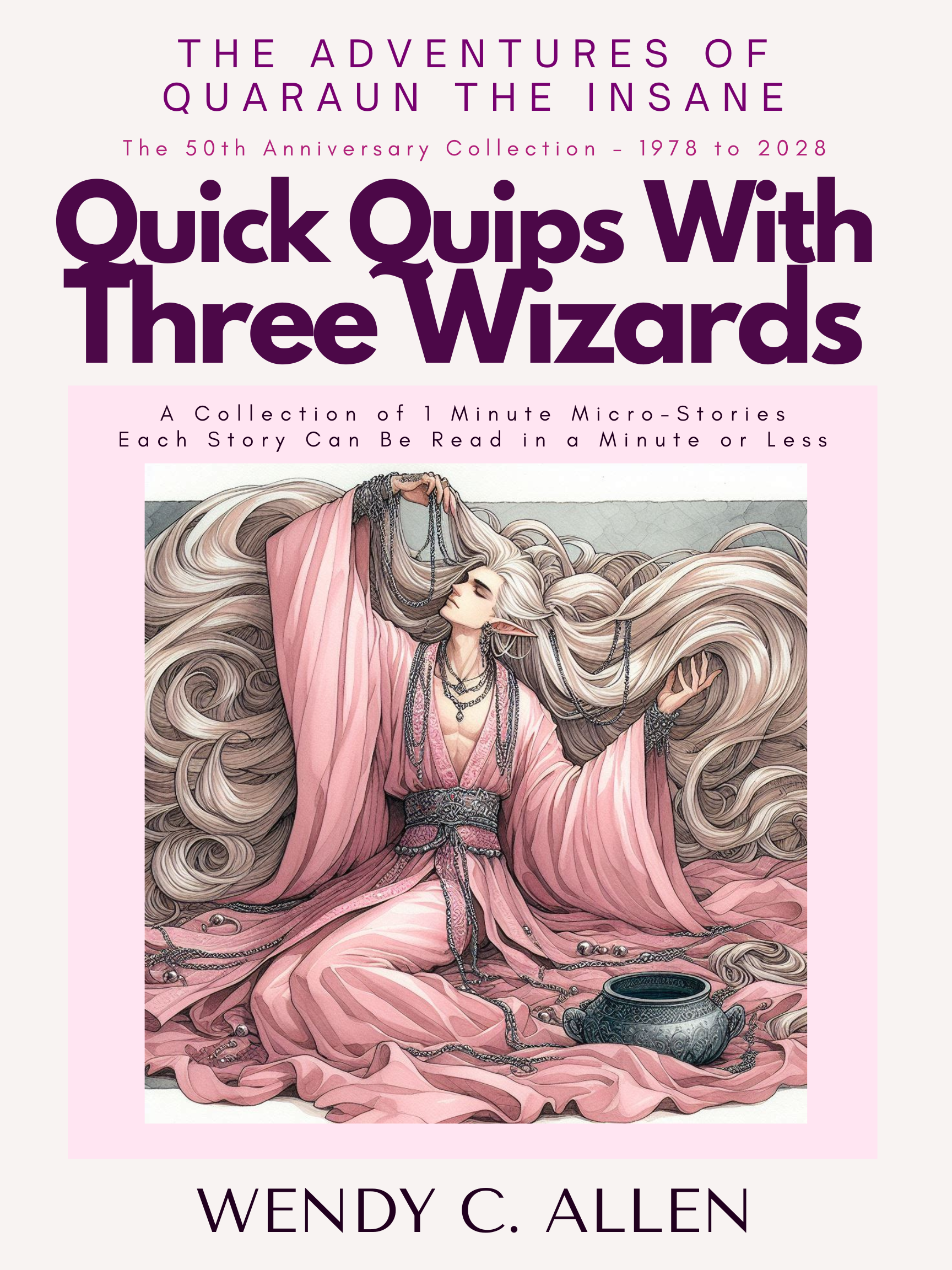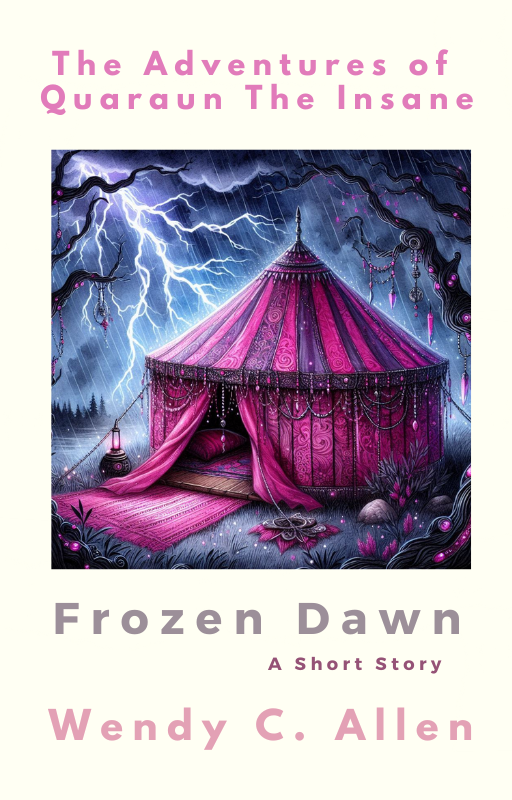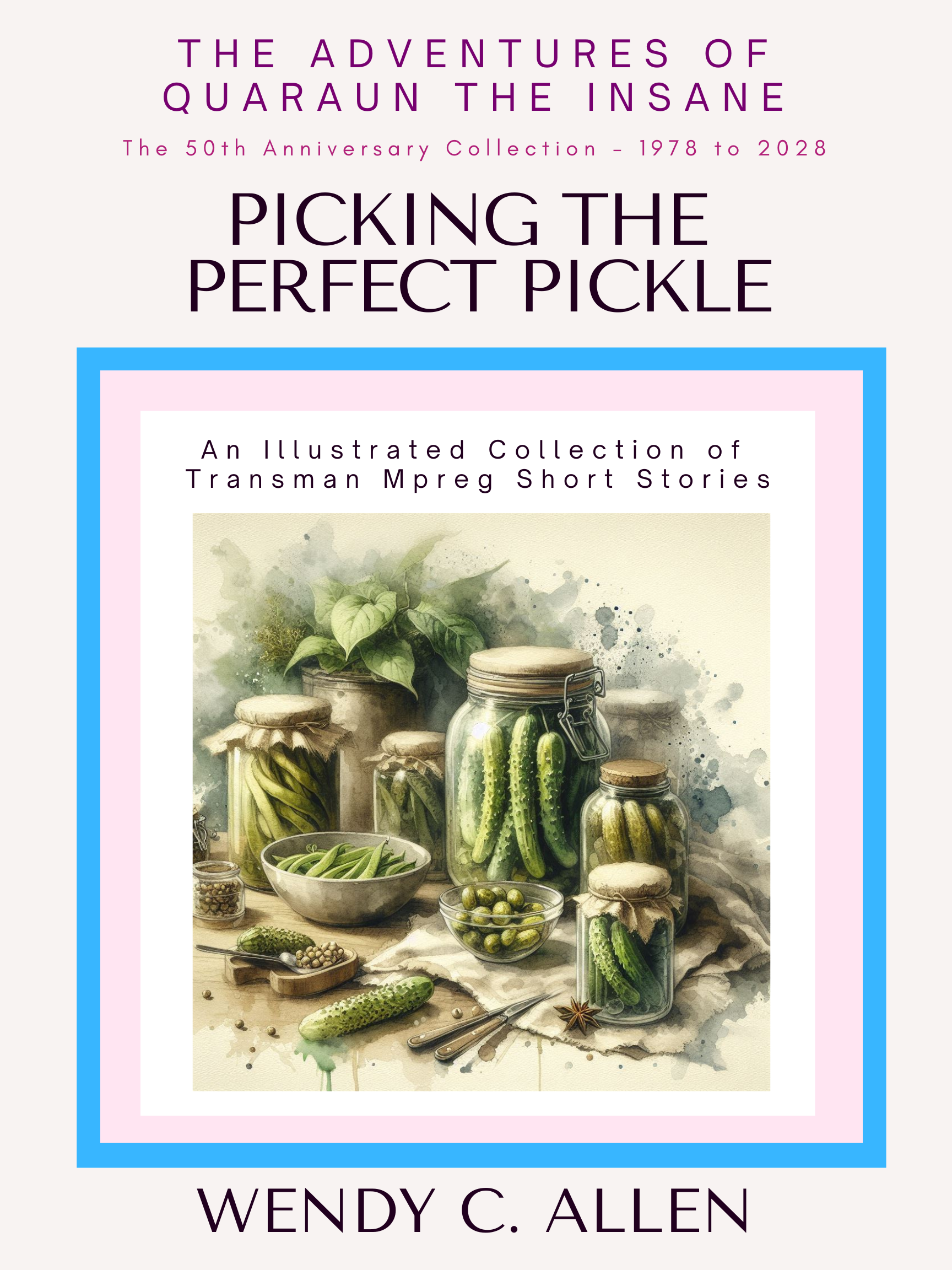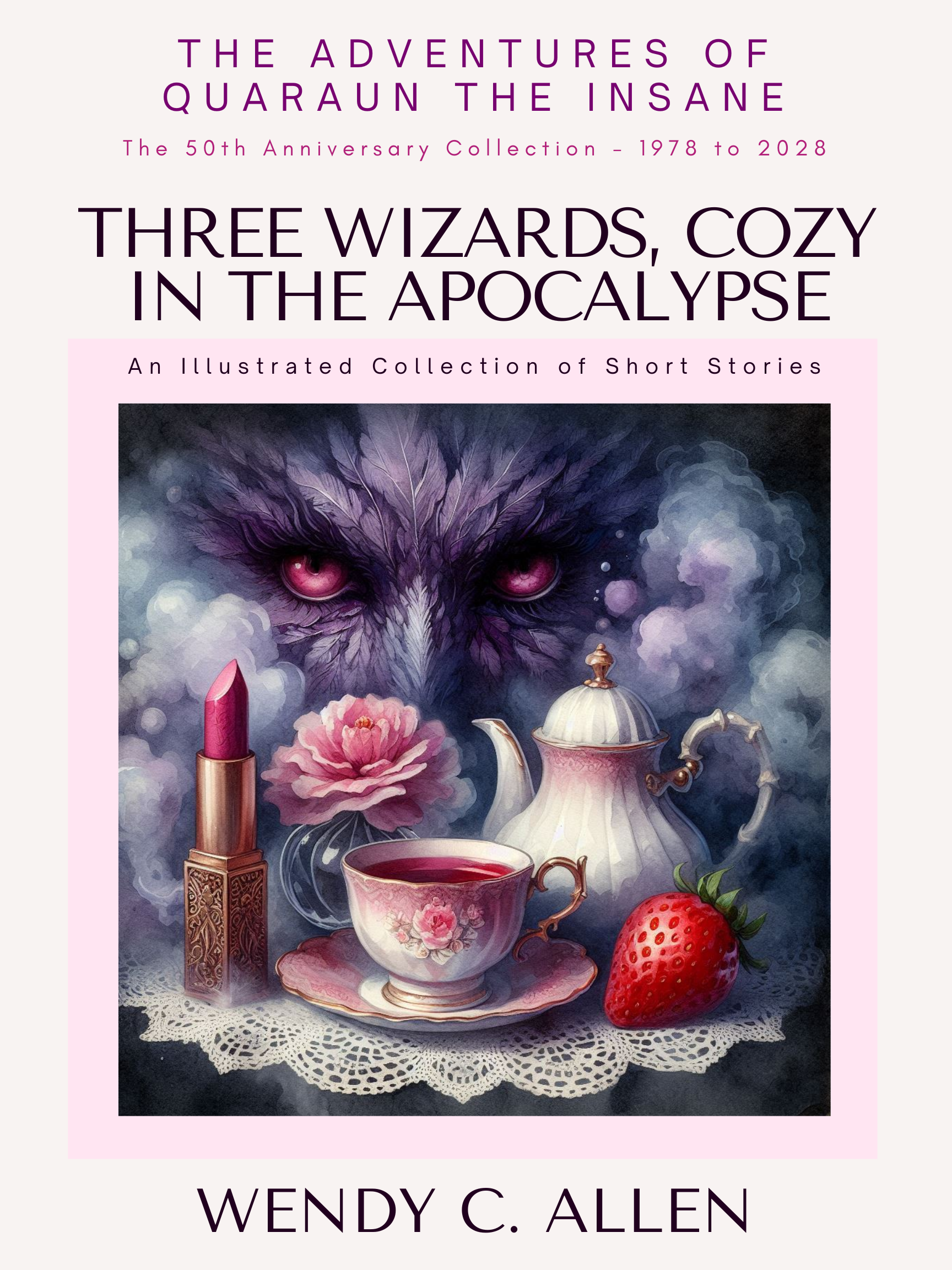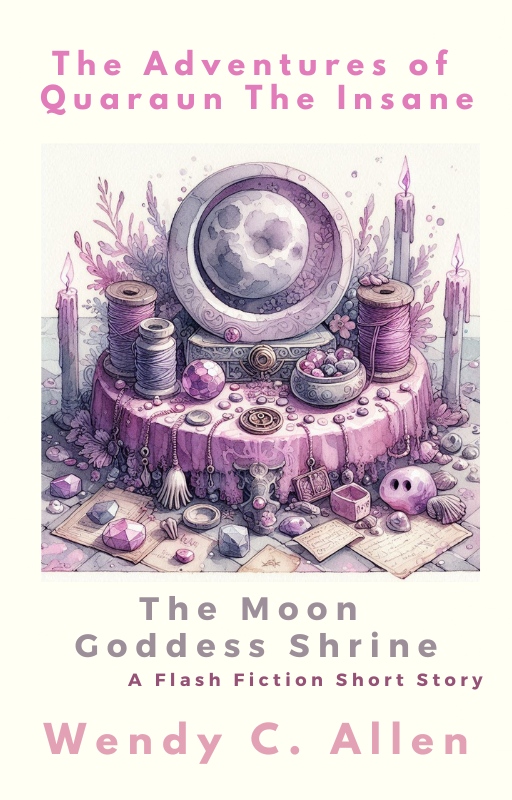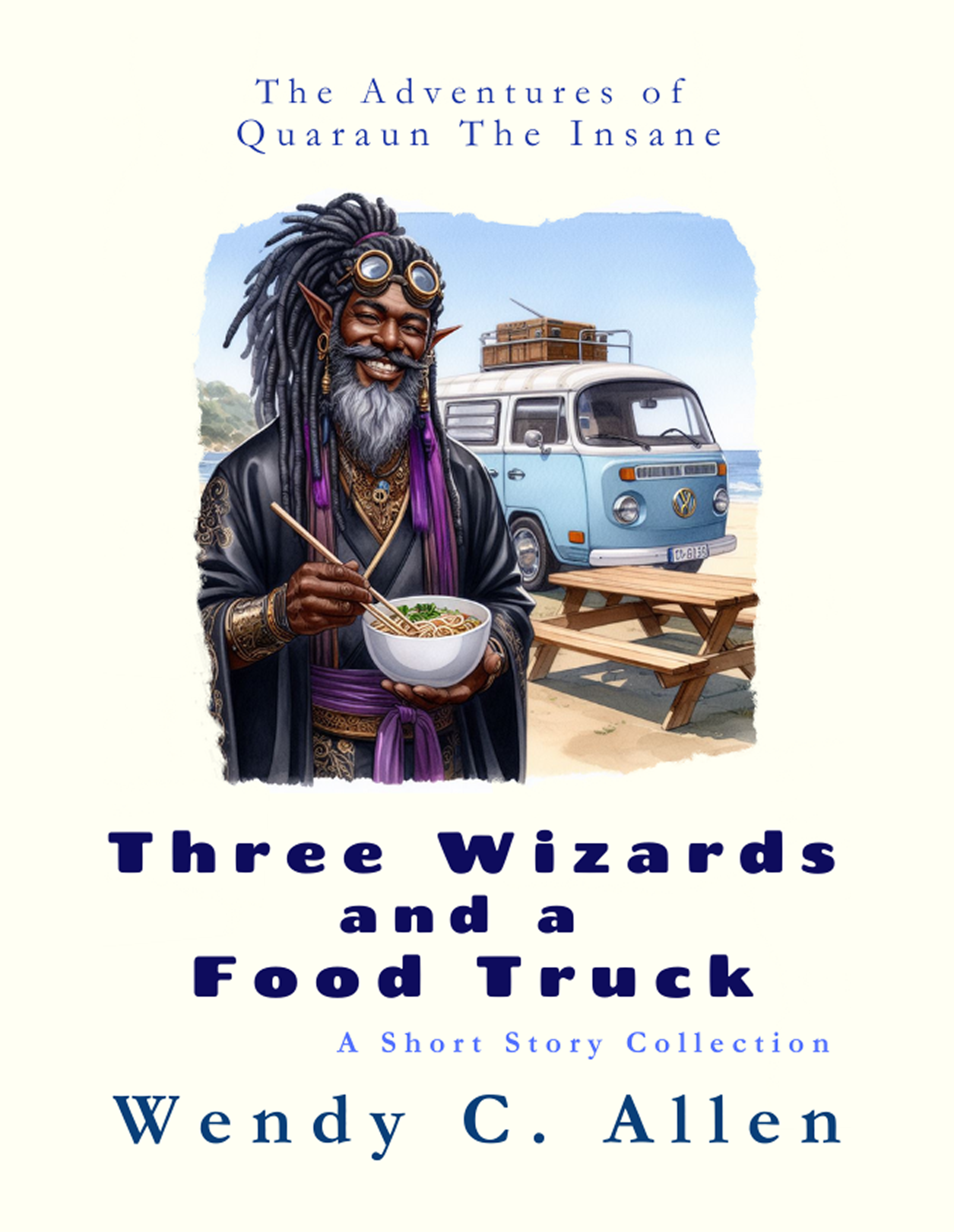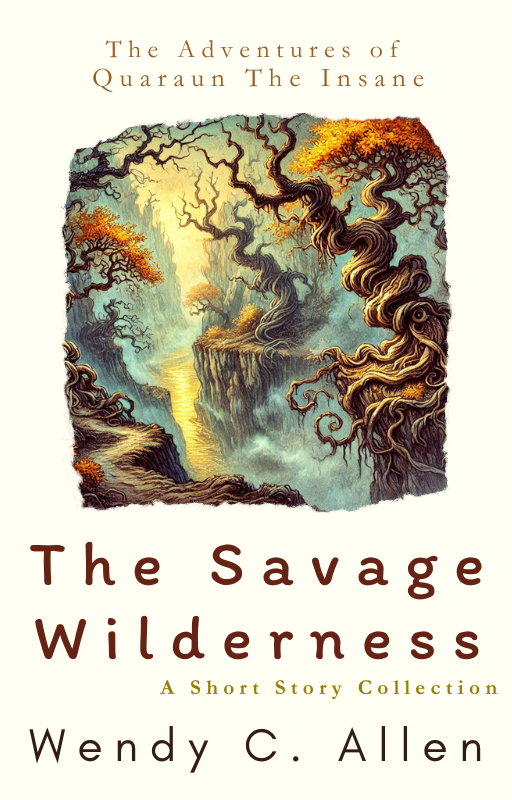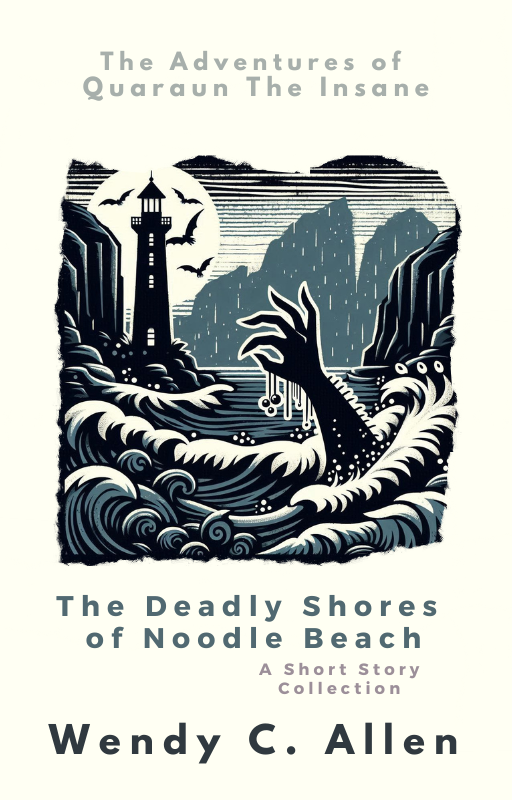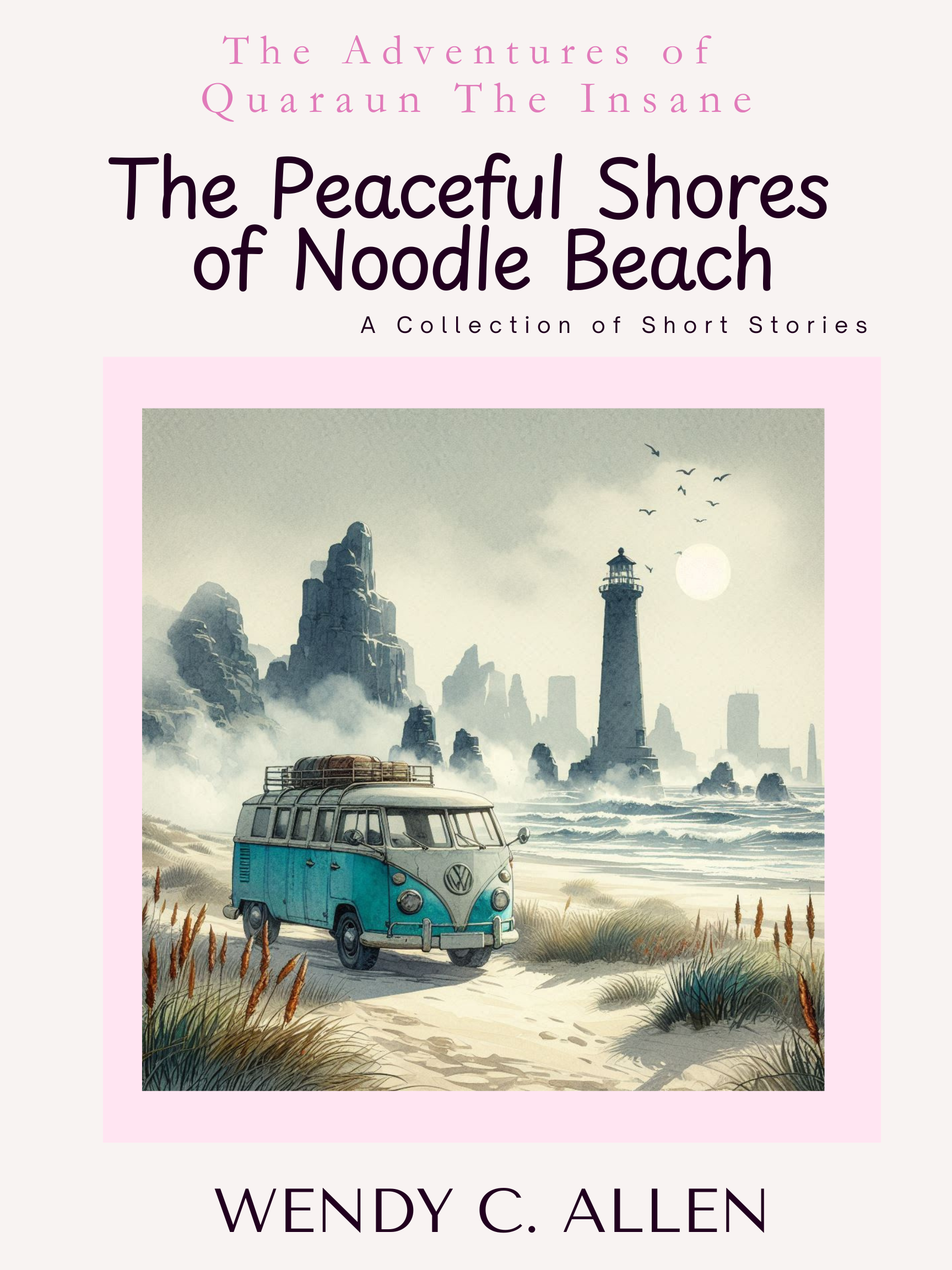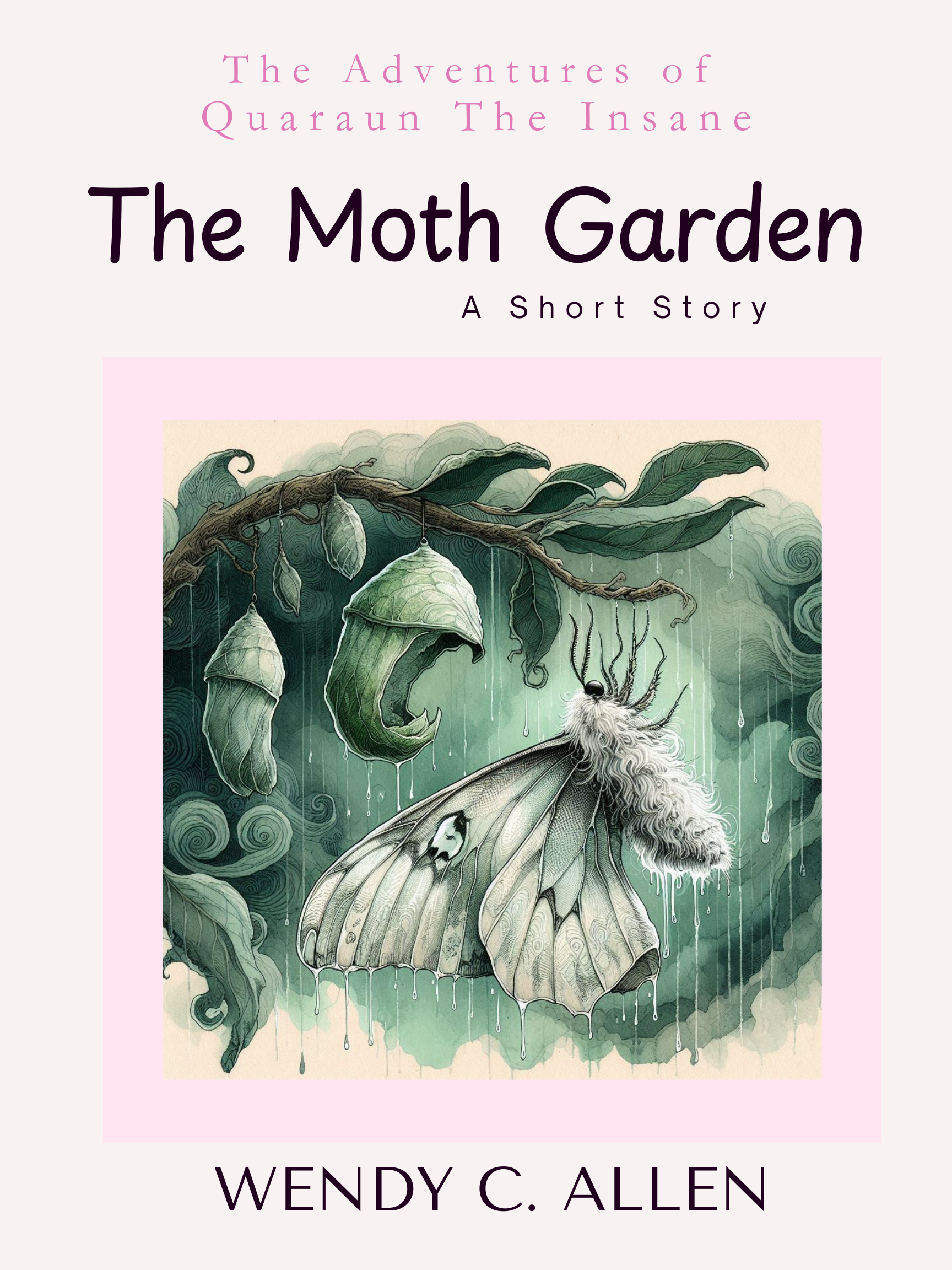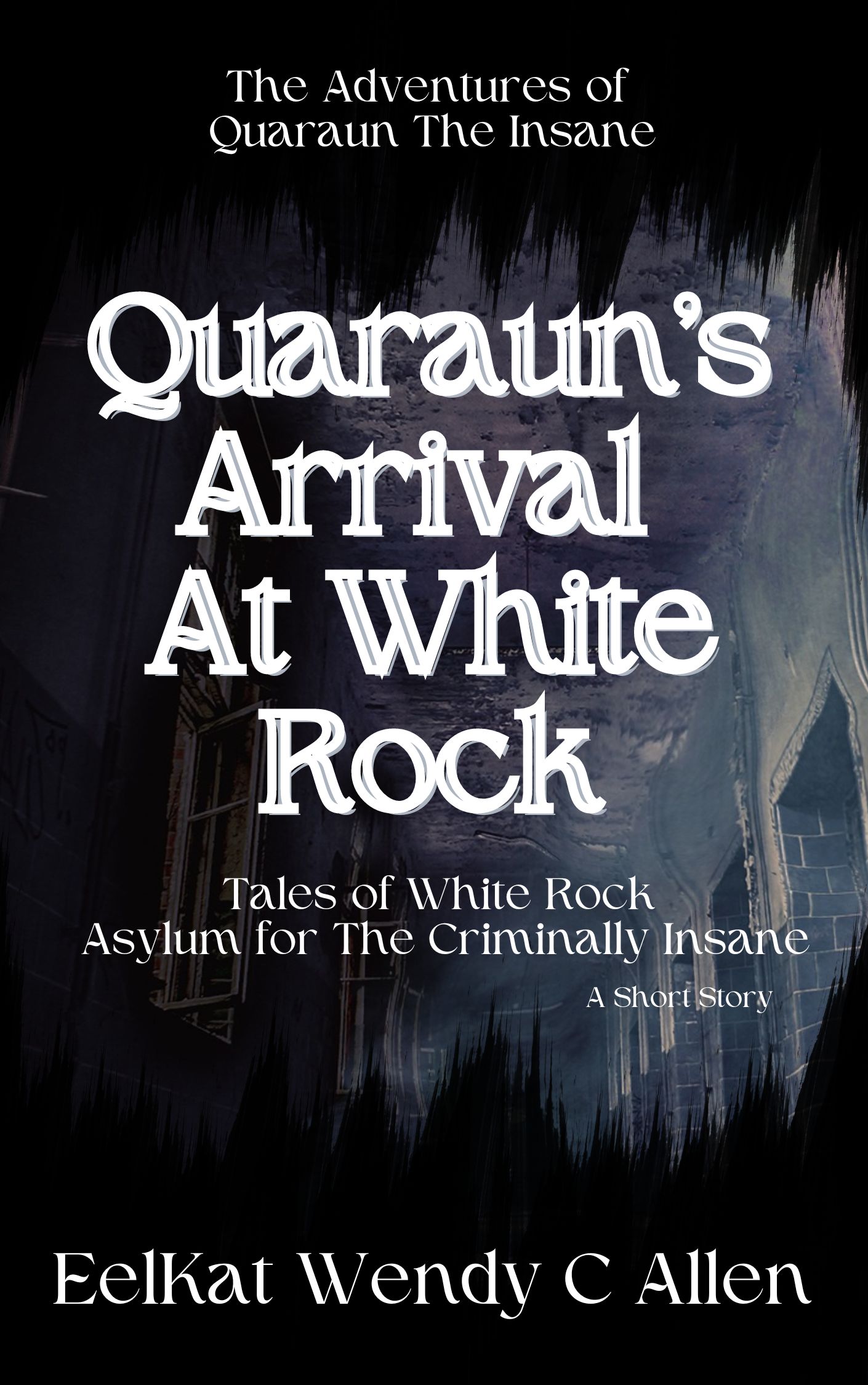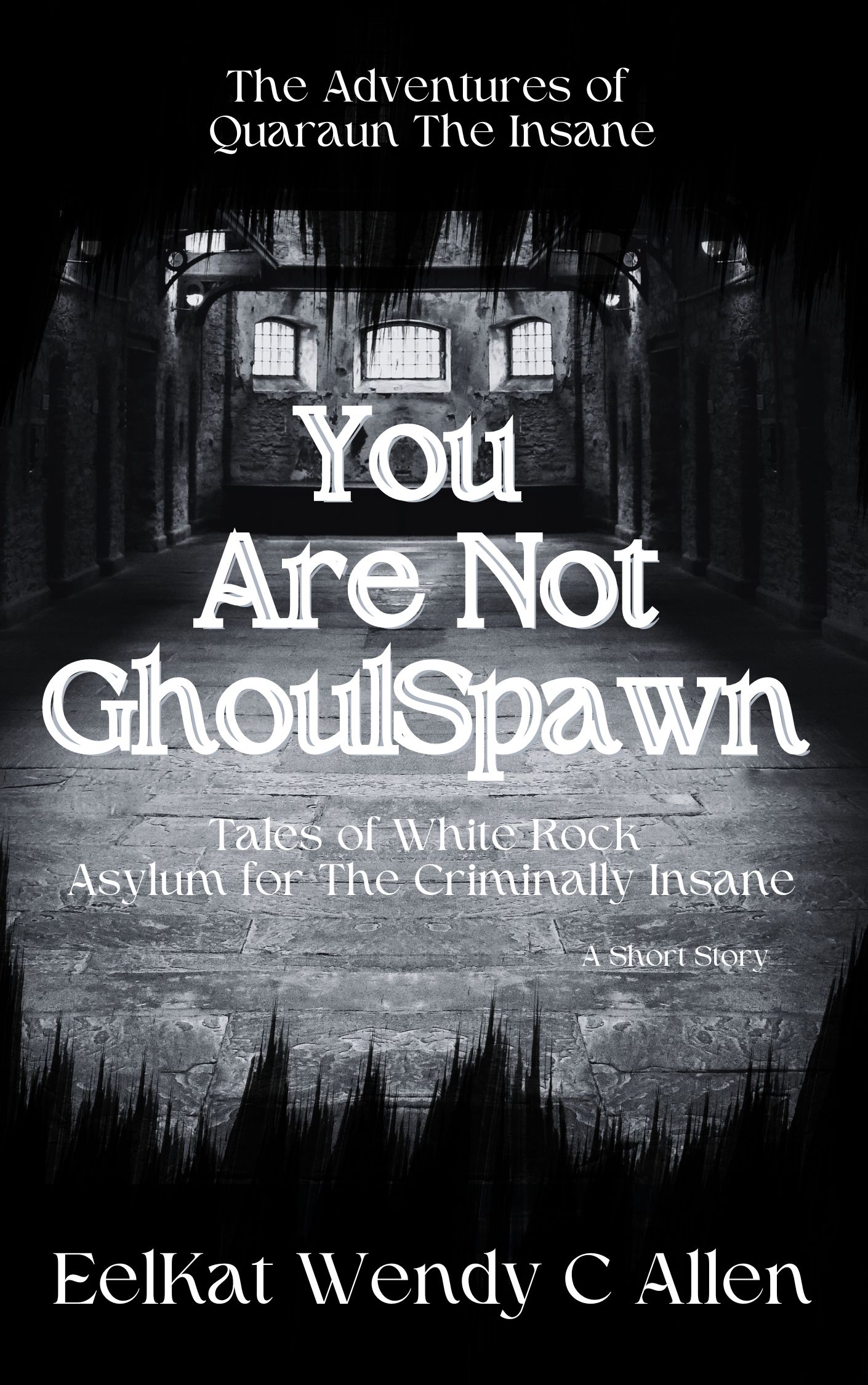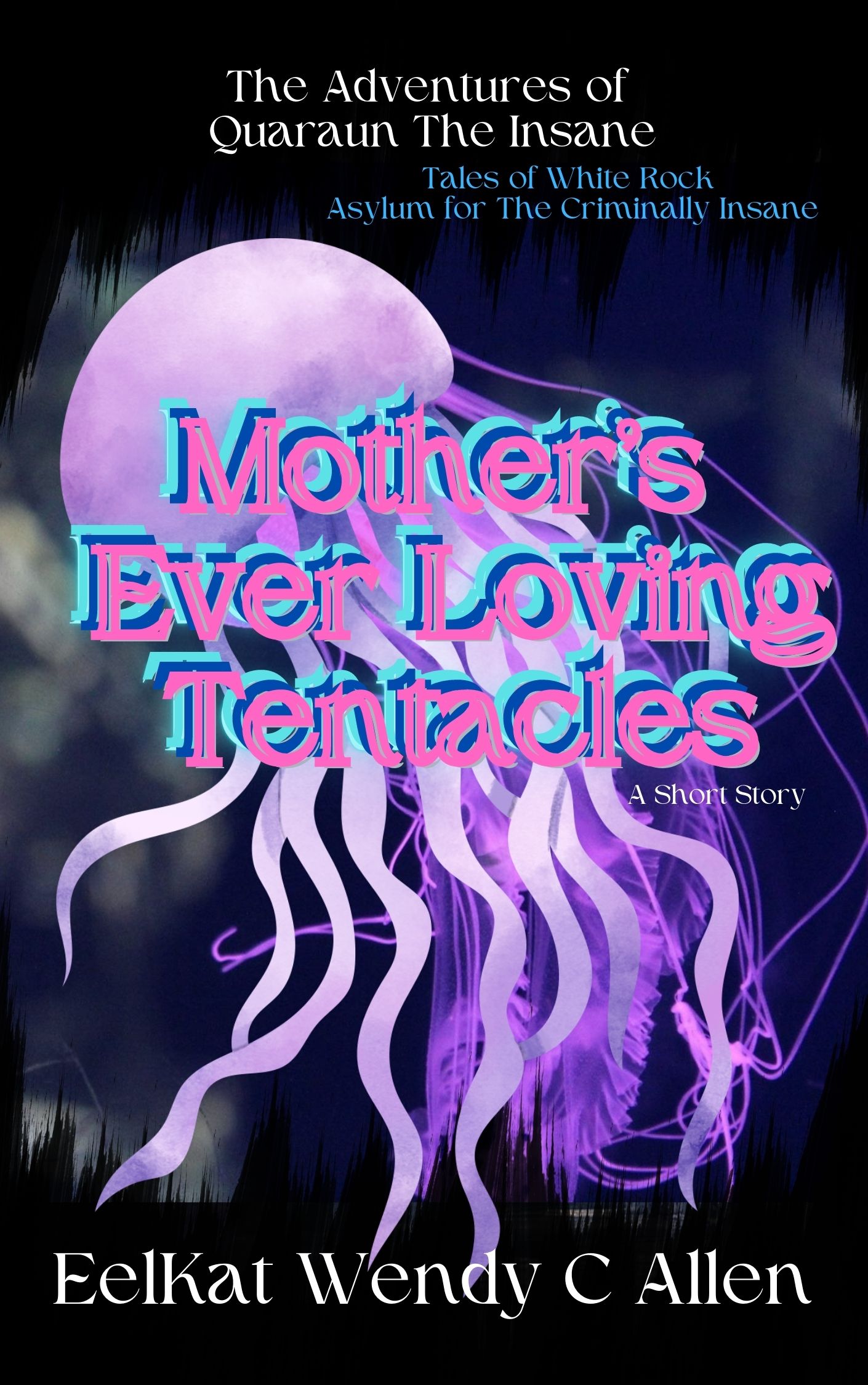Counting Down to the 2028 50th Anniversary of my first published book (September 23, 1978)
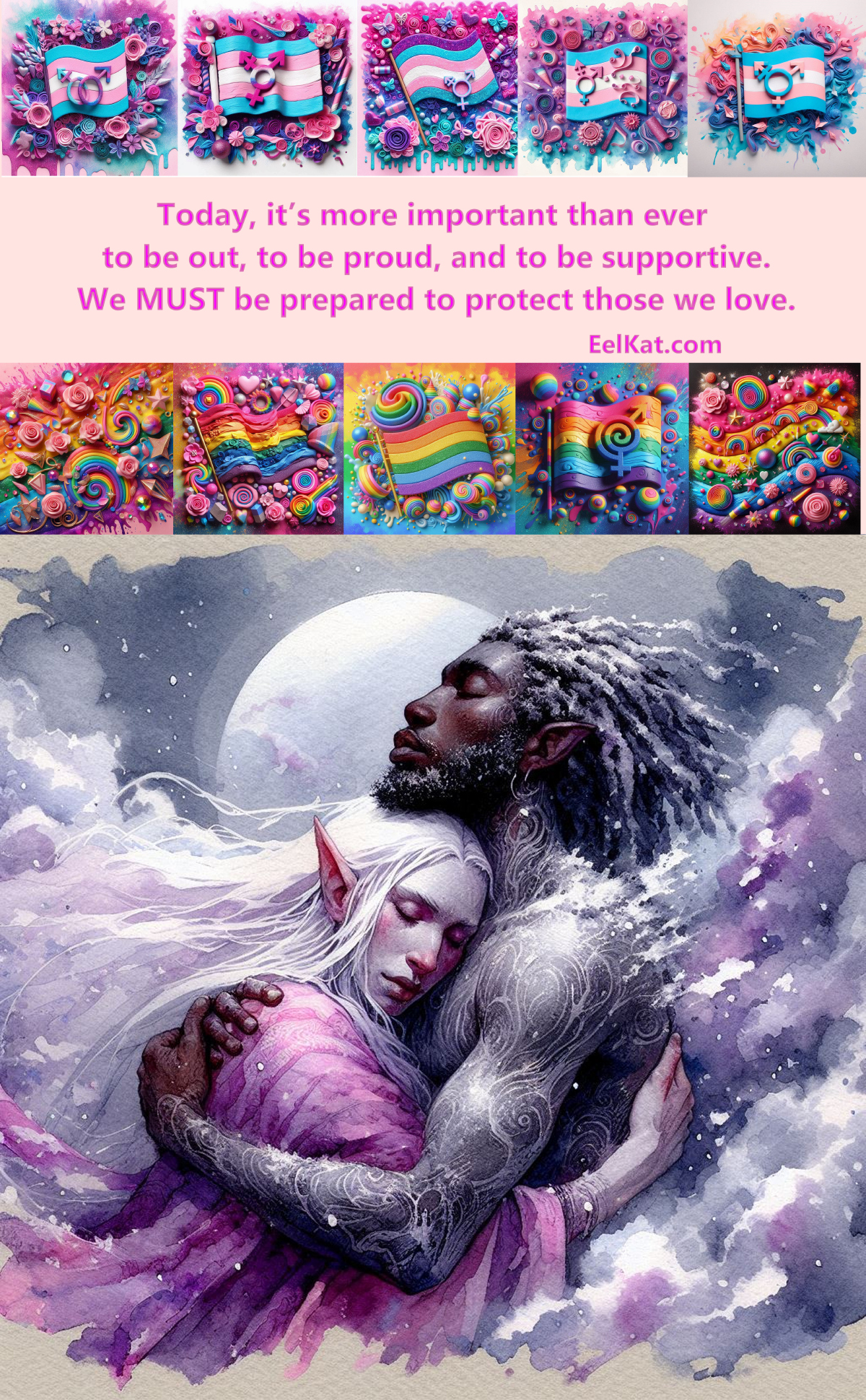 Transman Quaraun (The Pink Necromancer) and his husband King Gwallmaic (aka BoomFuzzy the Unicorn) King of The UnSeelie Court. Main characters of The Adventures of The Pink Necromancer series. Transman Quaraun (The Pink Necromancer) and his husband King Gwallmaic (aka BoomFuzzy the Unicorn) King of The UnSeelie Court. Main characters of The Adventures of The Pink Necromancer series.
|
This website is a safe zone for LGBTQAI+, pagans, polys, trans, neurodivergent, disabled, mobile aid user, minority, cosplayers, otherkin, furries, & BIOPIC communities.
If you are a hater, you can go fuck yourself.
Happy 2026!
It is our 30th anniversary here at Space Dock 13!
On the web since 1996!
You have encountered an extremely old website that continues to exist in old web ways, the same way it has done for now three decades.
In spite of being now 30 years old this year, started in 1996, it is still heavily active and old pages updated daily, new pages added daily, still now in 2026. All hand written, all hand coded (no AI), all by me, same as it ever was.
We Still Exist: The Old Web Did Not Go Away, You Just Forgot How To Find Us
|
This site was NOT designed for mobile devices (as they had not been invented yet when I created it) thus this site looks best on a computer, at 1280x768 or above. |
This is a very old website created in 1996, so, yes, javascript is needed for the site to work as it should. If things don't function, you may need to update javascript drivers on your device |
This site tries to be mobile friendly but it's been online since 1996, so old pages may not load right on mobile devices, and as this site has had pages added near daily for 30 years there are now over 20k pages here. |
Having started out in life as a GeoCities site, this site contains glitter, bright colours, blinkies, moving gifs, and other things the old web was known for. |
My Philosophy of Education and the Teaching of World Literature
Wendy C Allen
Oct 25, 2011
SID: 9032147
Introduction to Teaching
EDU 102
Ellen Towne
Room B107
Project:
Philosophy of Education Draft
I wasn’t sure what to write, so I decided to just ask myself simple questions, answer them and see where it took me. I asked myself: Who am I? What do I believe about schools, teaching, students, and literature? And how does all of this effect how I would teach? Than I started writing down the answers and just let the ideas ramble on from there. The end result is I wrote 11 pages! So, I don’t know, a lot of this may be irrelevant, but seeing as this is only the draft and you said you wanted to see how we were coming up with our philosophy ideas, I decided to just leave it as is, and edit it down to 2 pages for the final version.
~Wendy

My Philosophy of Education and the Teaching of World Literature
Who I am and what I believe, reflects my teaching goals and topic. So who am I and what do I believe?
I am a lifelong learner. I believe that education starts the day we are born and continues throughout our entire life. I believe that schools are there not to give us an education, but rather to teach us how to seek an education of our own.
I am an artist. I paint. I draw. I create. I love museums. I love fine art. I love to stare into A Starry Night and imagine myself flying through the swirling spirals. I love reading the giant hardcover illustrated classics: Edgar Allan Poe, The Phantom of the Opera, Alice in Wonderland, and all the rest, as portrayed to us by the brush strokes of Greg Hildebrant. I believe that through art, books can come alive and invite even the most reluctant reader into it’s pages.
I am a writer. I write, science fiction, and horror, and tales of the Fae from the shadowy mists of Scotland. I write short stories and plays. I believe that writing is the window to the soul, that writing lifts spirits and relieves stress, and is a pure joy to pursue.
I am a reader and a collector of books. More than anything else, I love books. I love the smell of the ink, the feel of the binding, the whisper of the turning pages, and most of all, the treasures and adventures in far away lands, which they hold inside. I love classic literature. I love Edgar Allan Poe. I love Gothic tales. I love the Brothers’ Grimm. I love A Christmas Carol. I love the morbid Roderic Usher, the headstrong James Retief, the zany Zaphod Bebbelbrox, the brooding Mr Rochester, the heroic Col. Brandon, the miserly Eberzeber Scrooge, the inquisitive Alice, the love struck Eric O.G., the obsessed Capt Nemo, the not what he seemed Prof Snape, the wild Willy Wonka, and the unpredictable Long John Silver. I love rereading their stories again and again, reliving their tales and following them on their adventures across the high seas, deep beneath the oceans, through the streets of London, lost in the dark moors of unnamed lands, across the galaxy in a star ship, and under the sewers of Paris. I love science fiction, adventure, and fantasy. My favorite book is The Hitchhikers Guide to the Galaxy, my favorite author (when it isn’t Edgar Allan Poe) is Keith Laumer, closely followed by James Blish.
I love Star Trek and Star Wars and X-Files and Doctor Who, for they are shows which like books, carry you away on the wings of adventure to explore the far reaches of the imagination. When I watch movies, they are ones based on books: The Princess Bride, Sense and Sensibility, Alice in Wonderland, Charlie and the Chocolate Factory, Lord of the Rings, Harry Potter... I love seeing books come alive on screen.
I am a CosPlayer and a D&D Dungeon Master. I design, sew, and create elaborate costumes of characters from books and comics and I don’t just play Dungeons and Dragons, I write scenarios, create characters, and build the costumes which I wear to play the games. For Halloween I dress up as characters from Edgar Allan Poe’s stories and poems.
I’m a collector of books. I own more than 10,000 books, not including my collection of more than 7,000 comic books, which brings the total to 17,000 books. Part of my book collection holds second place in the Guinness World Records - this set of rare (French and German language) comic books (many autographed) took me 28 years to track down each and every volume (more 700 books in the set) and is my most prized possession. I have no shortage of books with which to supplement my curriculum. To say I love books is a gross understatement. Books are my entire life. When I say I love books, and want to share my love of books with others, I mean, I really love books unfathomably and it is impossible for me to not share my love of books with others, because it’s the only thing I talk about.
Now maybe that all seems irrelevant for a Philosophy of Education, but that is who I am, (at my core I am someone with a major book addiction) and these facts about me, effect my thoughts on teaching and are what have inspired me to want to teach literature, to share my love of books with others, that they too, may discover the mired of worlds which exist within books.
I believe in active hands on learning. I believe that passive education creates passive adults who are just passing through life. I believe that actively participating in class as children, results in adults who actively participate in life. To explain what I mean, I shall explain what it is I view as passive and participative classrooms.
When one thinks of World Literature, one generally thinks of tired old professors, droning out dry lectures on the lives of authors long dead, of lessons measuring and graphing the rhyme and reason of the text, of analysing and dissecting unknown and speculative hidden meanings of what the author might have meant to say, rather that just reading the story for the sake of the story. This is not how I believe literature should be taught. I look at World Literature classes taught like this and say to myself:
“It’s no wonder so many students are struggling to read! Where is the passion? Where is the motivation? Where is the love?”
If you want children to read, you must first show them that it is alright to love reading. They must first want to read. It is for this reason, which I do not believe in lectures. Students find lectures boring, and lectures do nothing to help them retain information. What student wants to memorize names and dates which mean nothing to them in their daily lives? Lecture a student, give them a list of names and dates, and the answer you will get in return is:
“Why?”
“Why do I need to know this?”
“Why should I care?”
“Why can’t we do something fun?”
This is a passive classroom. The information is neatly packaged and passed on to the students. The students’ minds drift, they have nothing to do, nothing to keep them actively interested in the lesson, which they view as dull while they sit watching the clock and waiting for the bell to ring. The information passes into one ear and out the other. If a student is bored, the student is not interested in the topic, and if the student is not interested in the topic, they are not paying attention in class and therefore are not learning.
The student is not an empty vessel waiting to be filled with mounds of random facts. A student is a growing individual, looking to make their place in the world, and seeking the skills necessary to do that. A teacher’s goal should not be to fill the child with information, but rather to help a student learn how to seek that information on their own.
I believe the best way to do this is through open debate and discussion. Think of the last time you went to a movie. What happened when you came out? If you are like most people you went straight to your best friend and started telling the best scenes and why you loved them and how you felt watching them and why the storyline touched your soul and why they should watch the movie too. The two of you debated and discussed the pros and the cons of the movie, changes you would have made, ways it could have been better, why it wasn’t enough like its book, who should have played the lead role, and soon you were comparing events in the movie to events in the news and events in your life. What started out as you watching a movie has grown into an entire debate of morals, ethics and politics. Books should be like movies. Books should stir your soul and make you want to run to your friends and share the joys of everything you learned, everything you thought, and everything you felt. This is how I believe literature should be taught, actively, with students reading at home and than coming into the classroom to discuss what they read. Not every student need read the same book either. Each student reading a different book, opens the debate for greater discussion as they compare the differences between them.
Students may leave your lecture and not remember a word you said, but they will leave an open debate discussion with their brains full of new ideas on how they view the world, and ideas forming on what they can do to make the world they live in a better place. There in lies the awesome power of books, for they are far more than just an adventure into the imagination. Books inspire ideas. Books inspire people to action. Books inspire world changes. And when I say books, I do not mean just fictional novels, but also poems, short stories, plays, essays, biographies, autobiographies, and philosophical writings.
My philosophy of learning literature goes beyond reading and debate, however, for sometimes it is only through art which a student is able to express how deeply a book has touched their lives. Children are curious by nature. They learn best by exploring the world around them. They don’t just want to be told something is true. They want to see, hear, taste, smell, touch, feel, and know for themselves that something is true. To simply tell them information is not enough. They need to experiment with that information. They need to take it apart, analyse it, than reassemble it. Where would science be without experiments and lab work? Where would math be without charts and instruments? This is just as true of literature as it is of any other subject taught in school. For this reason I believe it is important that students have access to art materials within their literature classes: to draw, to paint, to sculpt, or to assemble their own interpretations of what they have read, for this allows them to express how they feel and promotes reading comprehension, critical thinking, logic skills, and deeper truer learning. I believe that art and literature go hand in hand and that one inspires the creation of the other. Taking this theory one step farther, I also believe that through the writing and acting of plays, students gain even fuller perspective of the story they have read. This is not a direct book to play translation, but rather a retelling of the story, which may or may not use the same characters and settings. There is nothing quite so telling of a students understanding of what they have read, as when they deconstruct that book, and write an adaptation of it for a class play, which they than perform. By recreating a book as a play, by retelling the base story, in a new light, you can truly assess the student’ understanding of what they read, for now you see it as they did.
I see reading, writing, drawing, painting, sculpting, and acting as a deeply connected and intertwining art form embracing and complimenting each other and when combined together in one class, help to develop a well rounded intellectual being capable of critically analysing the world around them, and promoting the development of being a self motivated life long learner. This is what I mean when I say I believe in active learning. The students read the books, debate the books, discuss the books, illustrate the books, write interpretations of the books, create sculptures of characters from the books, take field trips to see the books performed on stage, and act out the books themselves through role-play. Through these things literature becomes far more than listening to dry lectures; it becomes a living breathing thing which invites the children to actively participate in it. These are the types of activities which stay with them their whole lives. They will have forgotten the lecture before nightfall, but years from now they will still remember the activities they did. They’ll leave the lecture wondering “So, what was the point of that?”, but they’ll take part in the activity and say: “Now I know why you told me this. Now I understand”.
Another advantage of this interactive method to teaching is that it is adjustable to students of all learning levels, allowing for remedial readers to work along side of gifted readers, each being allowed to work on their projects at their own level of understanding.
Knowing books as well as I do, I’m well acquainted with the concept of the same story being told and retold in different formats. Some books are just too much for a student to digest in a single month. I feel that it is better to get the students acquainted with the classics in easily digestible steps. For example: Jane Eyre is a book loved by millions of teenage girls, but many find its massive size (more than 400 pages) daunting and thus avoid picking it up at all. They are not familiar with the tale, thus not motivated to pick up a book of such massive size. For many young girls, it was only through reading a much shorter abridged and illustrated edition, that they came to love the story of Plain Jane and her illustrious Mr Rochester, and once they know the story, they will often seek out and read the full unabridged edition. They were introduced in small steps, than wanted to know more. You have to get them hooked on the story before you can expect them to read the book.
Likewise for many boys, reading is a chore, yet give them a comic book edition of Treasure Island and they’ll soon be seeking out the unabridged edition as well. By being introduced to an illustrated abridgment, they learn what the story is about, they get drawn in by the sensation of it, and become eager to find out what parts were removed. I have used comic books in the past to help non-reading teen-aged boys become prolific readers. In the space of a single year, one boy whom I taught, went from being a total non-reader who started out “reading” Disney’s Uncle Scrooge comic books by looking at the pictures. If you are not familiar with Uncle Scrooge, it is no short feat to start out reading these. They are graphic novels with big words and a lot of them. They follow the daring adventures of Scrooge as he treks across the Amazon and Africa and Alaska in search of treasure during the late 1800’s and early 1900s, meeting many historical figures along the way. The Indian Jones movie series was based on the Uncle Scrooge comic books, which tells you the nature of these tales. Years of research went into the creation of these absolutely amazing books, and they are extremely historically and geographically accurate, and unlike traditional comic books each story has a whopping 10,000 words to read. These are not children’s or teen’s comic books, they were made for business professionals,bankers, museum curators, and others who wanted a form of “light entertainment” catering to their higher IQ levels. I have used these comic books again and again to get non-readers addicted to reading. This boy in particular, knew from the pictures what the story was saying, but did not know until reading the words, that the stories were comedies riddled with jokes and humor, which once he progressed from looking to reading, he was hooked on reading. Within weeks he went from reading Uncle Scrooge to reading early reader Bailey School Kid mysteries and by the end of the year read all 7 Harry Potter books, an accomplishment he could not have imagined doing a year prior. This boy was proof that if you love what you are reading, you will be motivated to read more and more, because once you discover the glorious worlds which exist inside of books, you just can’t get enough of them.
My goal is not to force students to read from required reading lists, but rather to help them find something which will inspire them to read more, and for this reason I include comic books, graphic novels, illustrated classics, abridged classics, and chapter books in my planned classroom library. I want to help students get excited about reading, to look at reading as fun. My goal is to help students to turn the “but I don’t like to read” response into “I can’t wait to read the next book”.
Additionally, the inclusion of classic novels in unbridged, abridged, illustrated, and graphic novel formats within the curriculum, allows students of varying reading levels to read a format they are comfortable with, while still being able to read the same story every one else is reading. They connect with the same characters, come to understand the same principles, but do it on their current reading level. It leaves no child out of the group discussion about the book, as they each got to read the story at a level they were comfortable with. Nor does it leave children behind in critical thinking, while it also encourages them to become better readers. I feel that reading for pleasure, grasping the concept of the story, and being able to discuss said story with your classmates is far more important than forcing students to read an unabridged book at a level they are not yet ready to comprehend. A teacher’s goal should be to help the student understand and progress, not to go over their heads and leave them behind wondering what was being read.
I also believe that reading what you want to read is far more important than slogging through something which bores you. At no time will any student ever hear from me “but that’s a book for little kids” or “but that book is too hard for you”. If a student wants to read a book, they should be allowed to read the book they chose for themselves, no matter how small and easy or how big and hard that book may be. If a teacher tells a student “You can’t read that because...” there is a good chance that child may never pick up a book ever again. I do not want to see any child lose their desire to read because someone told them they couldn’t. They should be encouraged to pick books on their own. They should be encouraged to read the type of books they are comfortable with.
This brings me to my beliefs about students and a teacher’s role in their lives.
I believe that each child is a unique and special individual and that every child has great potential. I believe that life is what you make of it, but that not every one understands they have the option to create their own path in life, and many do not know how to find the path they want to go on, and thus they need guidance. Students do not need to be told what to do, they need to be shown what they can do.
I view the ideal learning environment as a place which is warm, welcoming, inviting, and safe; a place where children can relax and be free of the stresses from the world outside of the classroom. I believe that children have a deep need to feel safe and secure if they are to grow and mature emotionally, socially, spiritually, intellectually, and physically into happy, healthy, well adjusted adults, and that in the world today they often do not have a place which provides these feelings for them. They hear rumors of wars and talk of terrorists. They see news reports of violence and riots, shootings and bombs. They feel lost and small, confused and terrified. The world is a big scary place and school should not be part of those fears. Schools should be a place were the children feel they are safe and protected, a place where they know there are adults who will look out for them. They need adults they can look up to, adults they know are there for them, adults they can feel it is safe to go to. Teachers are there for more than just teaching. Teachers must provide emotional support for the students as well. I believe that the classroom should be a place where children feel they are safe and secure, happy and needed, valued and important. A place where they can feel their opinion matters, where they are not afraid to ask questions and share ideas. It is my desire to provide a classroom where students feel safe and welcomed and to be a teacher students can talk to.
I believe that education does not exist exclusively within the classroom. I believe that we begin learning from the moment we are born, and that every day we are learning new things whether we know it or not. I believe this fact effects how a teacher should do their job, because education does not begin and end in the classroom. It is not a teacher’s job to just give information to students, but rather to teach a student how to seek out that information on their own. I view the teacher as being the crutch on which a student leans upon, until they are able to walk on their own and become a self motivated learner.
I believe that reading is fun and so is writing, but more than being fun, reading is the vital building block upon which everything else in life must stand. If an adult can not read and write, they will fall behind in social circles and in the workforce, and the better their reading and writing skills, the better social life and careers they will have. With better reading skills, come better opportunities both in higher education and in advancing their future careers. This is why I feel it is so important to get students wanting to read and reading in their own free time. Readers become leaders because they know more and have a better advantage with which to get ahead in life.
I believe that everyone can enjoy literature and that any one who dislikes literatur, simply has not found the right niche for them. Let’s face it, not every one loves Treasure Island, Jane Eyre is not right for every reader, and Shakespeare can be just plain hard to read. Just because it’s a great classic loved by many, doesn’t make it loved by all. I believe it is my job as a literature teacher to help students find the niche in literature which is right for them, so they too can discover books which they truly and passionately love to read. Not every book is right for every student, and therefor I also believe in tailoring my curricula to meet the interests of the individual students.
I view the literature course schedule as broken down into genre topics, a different one each month. For example, September is “Banned Book Month”, October is “Gothic Literature Month”, November is “National Novel Writing Month”, January is “Science Fiction and Fantasy Month”, and April is “Script Writing Month”. Taking these national events into account, September would be spent reading banned books such as Huckleberry Finn, Harry Potter, The Wizard of Oz, Lord of the Flies, 1984, To Kill a Mockingbird, The Scarlet Letter, or other famous banned books, along with looking at why these books were banned, and discussing freedom of the press and the implications books have on society. October would be spent reading Edgar Allen Poe, H.G.Well, Jules Verne, Jacob and Whilhem Grimm, Emily and Charlotte Bronte, Brahms Stocker, Gaston Lurox, Robert Browning, Mary Shelly, Robert Louis Stevenson, H.P. Lovecraft, and other masters of Gothic Literature. November would not only look at how a novel is written, but be spent in using the world’s largest writing competition, NaNoWriMo and their online Young Writer’s Program (designed specifically for English teachers to use in the classroom) to help students actually write and publish a short novella in 30 days of less. For a child nothing feels greater or provides a bigger boost in self esteem than holding a copy of their very own published book in their hands. December would involve a study of Charles Dicken’s play, A Christmas Carol, and a field trip to see the play live at the Maine State Theater. And so on and so forth, each month being a unit study of a different topic in literature, with the classes different from year to year depending on the individual interests of the students.
It is my hope that by the end of the school year, each student will have found a niche in literature which they love, have developed a habit of free reading for the fun of it, have written and published a short novella, have written a short one act 10 minute play, have learned to look at the world around them through the eyes of a creative and intellectually deep thinking critic, and have developed the desire to be a self motivated life long learner, as well as to have developed a greater appreciation for fine arts in general and world literature in particular, and a solid grasp on English grammar and composition.And that is my basis for my philosophy of education.
This page was written by Wendy Christine Allen of 146 Portland Ave, Old Orchard Beach, Maine.
All Rights Reserved.
While there are around 20k pages on this website, most of them are blocked from search engines, with only around 800 of them available for appearing in Google/Bing/etc search results. The remainder can only be accessed via the various links found throughout this site. This was done deliberately on my part, and I did it because the bulk of the pages on this website are chapters from 138 novels and 423 novellas, so only the first page of each novel and novella indexed by search engines, and the remainder are linked in order, one page at a time, via clicking "next page" at the end of each. So if you are looking for a specific page from a specific novel, Google can't help you.
|
Thank you for stopping by and have a nice day! ꧁✨🌸🔮🦄🔮🌸✨꧂ And if it’s your birthday today: ִֶָ𓂃 ࣪˖ ִֶָ🐇་༘࿐꧁ᴴᵃᵖᵖʸ☆ᵇⁱʳᵗʰᵈᵃʸ꧂🤍🎀🧸🌷🍭 |
 |
Get an email whenever Wendy Christine Allen 🌸💖🦄 aka EelKat 🧿💛🔮👻 publishes on Medium.
I also write on these locations: | Amazon | Blogger | GumRoad | Medium | Notd | OnlyFans | Tumblr | Vocal |
Important:
Fraudulent sites are impersonating Wendy Christine Allen.
- The ONLY official website for Wendy Christine Allen is www.eelkat.com
Fraudulent social media accounts, particularly on Reddit and FaceBook are impersonating Wendy Christine Allen.
- The ONLY official social media accounts for Wendy Christine Allen are listed in the footer here at www.eelkat.com
Find Me on Social Media:
- Amazon: Author Central
- Amazon: Quaraun Series Index
- Blogger
- CafePress
- DeviantArt
- FaceBook (Profile)
- FictionPress
- Gravatar
- GumRoad
- Lemon8
- Medium
- Notd
- OnlyFans
- PayPal
- Reddit 1 (Primary)
- Reddit 2 (Alt; Archived)
- SpoonFlower
- TikTok
- Tumblr
- Twitch
- Twitter (X)
- Vocal
- WordPress
- YouTube
- YouTube Shorts
- Zazzle: My Art
- Zazzle: Quaraun Merch
Any websites and accounts you find online that are NOT on this list are NOT Wendy Christine Allen
